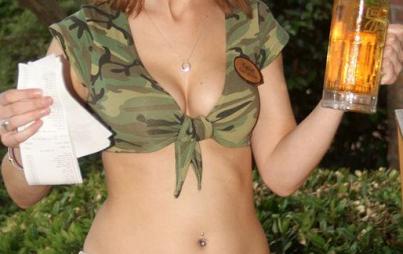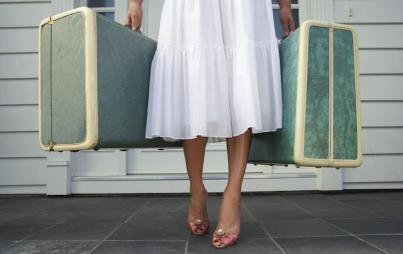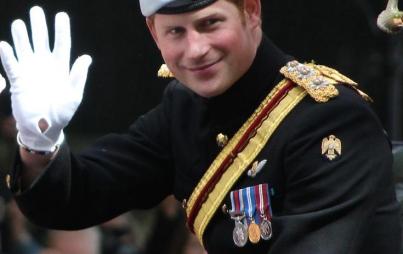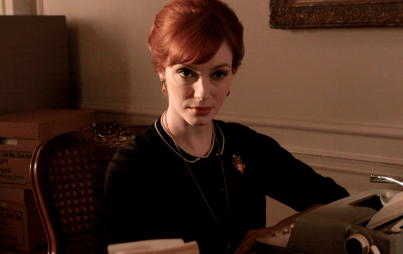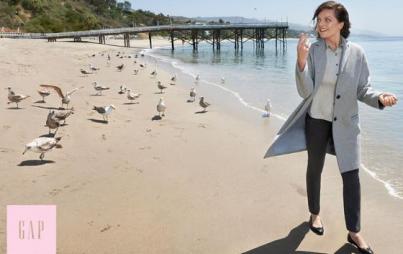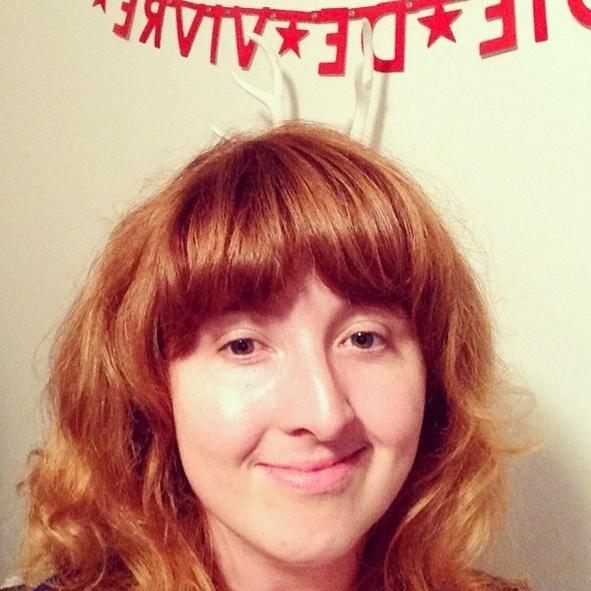
Storytelling has captivated audiences for millennia. Regardless of genre, we can't get enough of the escape that comes through entering a finely crafted world, be it fictitious or real, vividly brought to life. Among the budding masters of the craft is Elisabeth Donnelly.
The nonfiction editor of Flavorwire has had her essays and interviews published in print and online form at The New York Times Magazine, The L.A. Times, The Boston Globe, The Cut and The Paris Review, among others. Dabbling in the world of make-believe, she is also the co-writer of the young adult book The Misshapes (writing under the pseudonym Alex Flynn), now available through Polis Books.
As insatiably curious writers ourselves, we reached out to Donnelly to talk writing, pop culture . . . and the curious similarities between Gilmore Girls and Twin Peaks.
From your 2012 Mad Men piece to an earlier article about “Wizard Rock,” you seem to be a pop culture fiend. What about this genre appeals to you?
I was a goofy, movie-besotted kid and voracious reader, and I obsessed over things. I carried around a copy of Inside Oscar (this dishy backstage book about the history of the Oscars), and I was a human IMDB before IMDB. Adults could give me the year and I could tell you what won best picture. From there, I started appreciating the storytelling that could be shared through art, from movies to television to books. I've really enjoyed the opportunities that I've gotten to write about subcultures and passions that emerge from the idea of loving something—the amazing Harry Potter fan community, for one—and I think they reflect our human need to connect.
The Misshapes (which you cowrote with Stuart Sherman) focuses on teens with superpowers. What inspired this plot? And why did you focus on a young female protagonist?
We were on a long car drive to the Montague Book Mill, a used bookstore in an old mill next to a roaring creek (it's wonderful, go there), and while we were on the winding country roads that lead there, I was kind of musing on "what would it be like to control the weather?" "What if your mercurial emotions controlled the weather?" "What if you were a teen girl?" That was the start, and we ended up sort of riffing about what it would be like to have superpowers that weren't so great, and the resulting book ended up being a little bit X-Men, a little bit Gilmore Girls, and a little bit Rushmore.
Is there a story behind the pen name “Alex Flynn?”
It's funny, we wanted a gender-neutral name and Stu claims "Taylor" isn't gender-neutral anymore, thanks to Taylor Swift. Lies, I say! (Also the name Taylor is great.) Flynn, on the other hand, is the last name of our great friend, and it's fun to say.
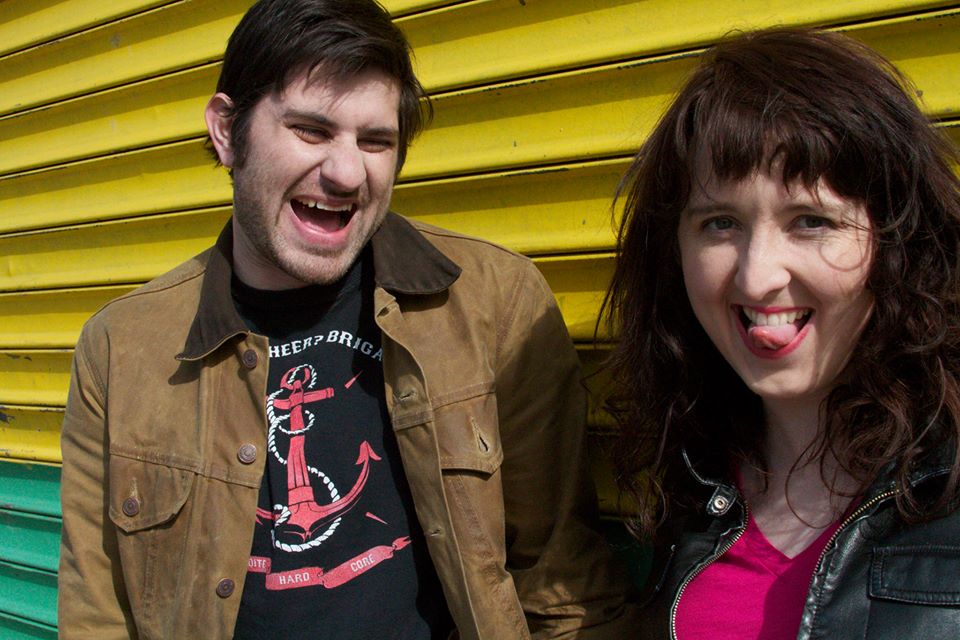
When it comes to writing, do you prefer fiction or nonfiction? How does your writing process differ for each?
Nonfiction is great, because it gives you the opportunity to be nosy and to ask anyone a variety of questions. I try to approach nonfiction from a place of empathy and reportage, and I hope that's reflected in the work. Fiction, on the other hand, requires making up whole worlds out of nothing, and making yourself laugh, and it's fun and addictive, I think.
You've interviewed, as you put it, "MacArthur Grant geniuses, icons, celebrities, Oscar-winning actors, world-famous writers and Boston Bruins." What interview has stuck with you the most, and why?
The ones that have stuck with me have been the ones where I've gotten to talk to writer heroes, where they talk about inspiration, discuss how they've become writers, and what sort of practices they've had with writing. I had a great time with William Kennedy, where he told me about how he balanced his pursuit of fiction with his journalism bonafides, and one way he taught himself the art of fiction was to go interview every interesting writer out there, to see how they did it. It worked. I also was able to interview Elizabeth Gilbert, who was lovely and wonderfully honest, at the truly strange and gorgeous Boston Athanaeum library. You could see how powerfully the audience responded to her work. It felt a bit like church, and it was a special time to see someone at work.
What are your writing career goals—both realistic and dreamy?
I have longer nonfiction projects in the works, and it'll be interesting to see whether they'll take the form of an article or a book. Currently, I'm writing frequently, and my future goals are to pursue more long-form pieces in print and online. While I'm currently writing a lot about nonfiction books and pop culture, I'd also like to write about things like sports and stories about extraordinary, strange people.
Dreamy: going to some killer writing residencies in magical locations. I've read about ones on islands in the Pacific Northwest, castles in Italy, a cabin in New Hampshire, and it would be great to do all of it. Every residency ever! Most of all, though, I would like to travel for the sake of future writing projects—it sparks your mind, and that process does something interesting to creativity.
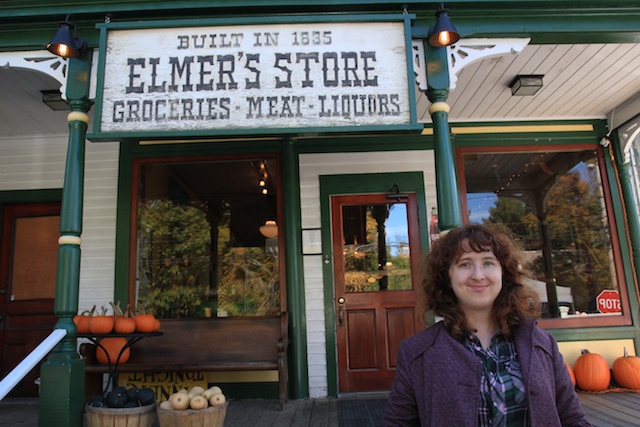
Who are your writing heroines?
The writers that I read at an early age who wrote things that made me think I want to do that! were Susan Orlean and Elizabeth Gilbert. I loved their journalism in The New Yorker and books like The Orchid Thief, in the case of Orlean. There was an article that Elizabeth Gilbert wrote in a 1997 issue of Spin that I still remember, and I impressed my husband early on when he was telling me about a case in law school and I was like, Oh, know allll about that, thanks to this Spin article. Gilbert's been able to move between intense journalism about manliness and fiction handily, and I admire her passion, empathy and depth.
Lately writers like Leslie Jamison and Rebecca Solnit have been literally creating new neural pathways in my brain with their ability to follow their curiosities and to bring empathy and beauty to their nonfiction writing. There's also a million amazing women writing now, every day, and if I started I couldn't stop but writers like Jennifer Percy, Bim Adewunmi, Durga Chew-Bose and Rachel Syme are just some that come to mind!
If you had to pick one thing you've ever written to show people who've never seen your work before, which one would you choose?
The Mad Men piece, as I really was able to push myself into a different space as a writer. There's an upcoming piece about the fascinating life of art model Audrey Munson that I'm very excited about. If I wanted to have a conversation with someone, maybe the recent Flavorwire piece I wrote about my goofy theory that Gilmore Girls is basically a Twin Peaks tribute show (which it totally is). I could definitely see Alexis Bledel on the 2016 Twin Peaks.

